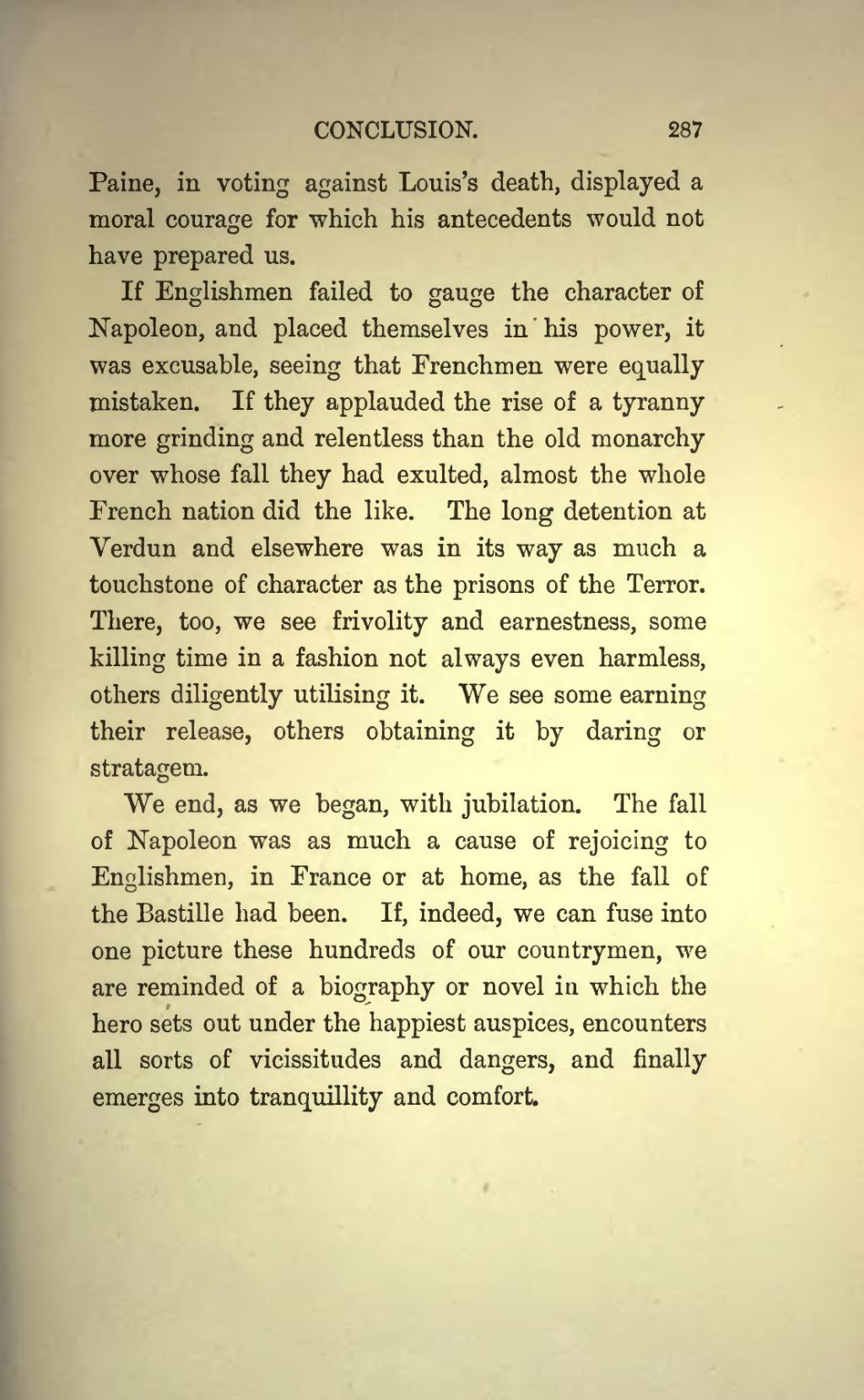Paine, in voting against Louis's death, displayed a moral courage for which his antecedents would not have prepared us.
If Englishmen failed to gauge the character of Napoleon, and placed themselves in his power, it was excusable, seeing that Frenchmen were equally mistaken. If they applauded the rise of a tyranny more grinding and relentless than the old monarchy over whose fall they had exulted, almost the whole French nation did the like. The long detention at Verdun and elsewhere was in its way as much a touchstone of character as the prisons of the Terror. There, too, we see frivolity and earnestness, some killing time in a fashion not always even harmless, others diligently utilising it. We see some earning their release, others obtaining it by daring or stratagem.
We end, as we began, with jubilation. The fall of Napoleon was as much a cause of rejoicing to Englishmen, in France or at home, as the fall of the Bastille had been. If, indeed, we can fuse into one picture these hundreds of our countrymen, we are reminded of a biography or novel in which the hero sets out under the happiest auspices, encounters all sorts of vicissitudes and dangers, and finally emerges into tranquillity and comfort.
